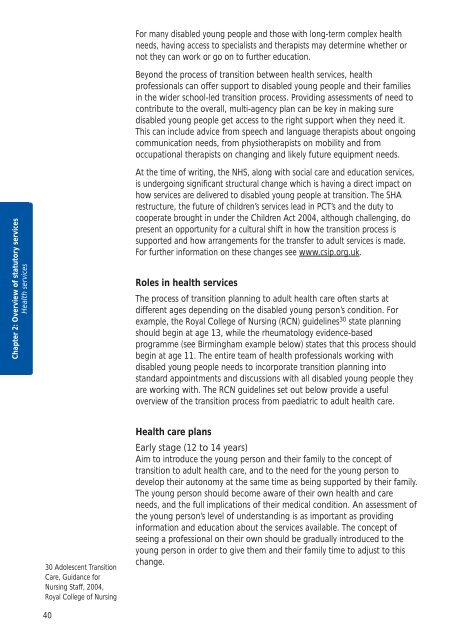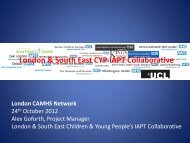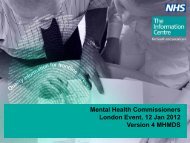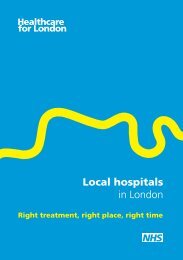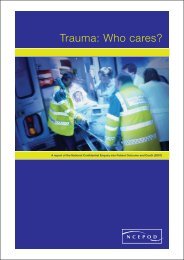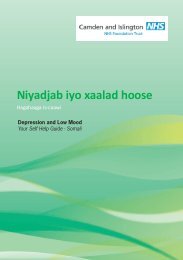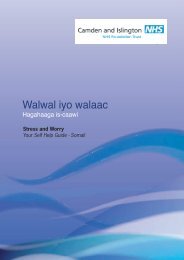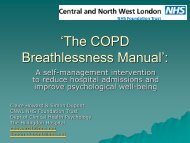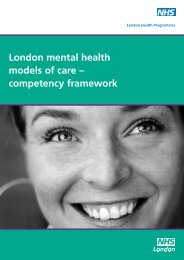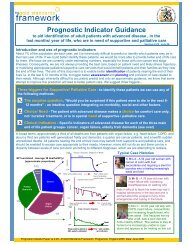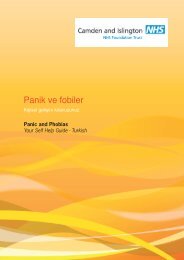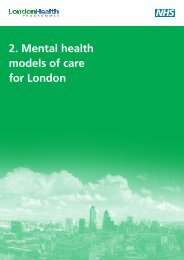A Transition Guide for All Services - Transition Information Network
A Transition Guide for All Services - Transition Information Network
A Transition Guide for All Services - Transition Information Network
- No tags were found...
Create successful ePaper yourself
Turn your PDF publications into a flip-book with our unique Google optimized e-Paper software.
For many disabled young people and those with long-term complex healthneeds, having access to specialists and therapists may determine whether ornot they can work or go on to further education.Beyond the process of transition between health services, healthprofessionals can offer support to disabled young people and their familiesin the wider school-led transition process. Providing assessments of need tocontribute to the overall, multi-agency plan can be key in making suredisabled young people get access to the right support when they need it.This can include advice from speech and language therapists about ongoingcommunication needs, from physiotherapists on mobility and fromoccupational therapists on changing and likely future equipment needs.Chapter 2: Overview of statutory servicesHealth servicesAt the time of writing, the NHS, along with social care and education services,is undergoing significant structural change which is having a direct impact onhow services are delivered to disabled young people at transition. The SHArestructure, the future of children’s services lead in PCT’s and the duty tocooperate brought in under the Children Act 2004, although challenging, dopresent an opportunity <strong>for</strong> a cultural shift in how the transition process issupported and how arrangements <strong>for</strong> the transfer to adult services is made.For further in<strong>for</strong>mation on these changes see www.csip.org.uk.Roles in health servicesThe process of transition planning to adult health care often starts atdifferent ages depending on the disabled young person’s condition. Forexample, the Royal College of Nursing (RCN) guidelines 30 state planningshould begin at age 13, while the rheumatology evidence-basedprogramme (see Birmingham example below) states that this process shouldbegin at age 11. The entire team of health professionals working withdisabled young people needs to incorporate transition planning intostandard appointments and discussions with all disabled young people theyare working with. The RCN guidelines set out below provide a usefuloverview of the transition process from paediatric to adult health care.30 Adolescent <strong>Transition</strong>Care, Guidance <strong>for</strong>Nursing Staff, 2004,Royal College of NursingHealth care plansEarly stage (12 to 14 years)Aim to introduce the young person and their family to the concept oftransition to adult health care, and to the need <strong>for</strong> the young person todevelop their autonomy at the same time as being supported by their family.The young person should become aware of their own health and careneeds, and the full implications of their medical condition. An assessment ofthe young person’s level of understanding is as important as providingin<strong>for</strong>mation and education about the services available. The concept ofseeing a professional on their own should be gradually introduced to theyoung person in order to give them and their family time to adjust to thischange.40


